17 Scams in Vietnam to Avoid When Visiting
There’s no way to sugarcoat it; tourist scams in Vietnam are common. But that doesn’t take away from how beautiful the country is or how genuinely warm many of its locals can be. I’ve traveled extensively across Vietnam over the years.
While some of my most memorable interactions have been with kind and welcoming people, I’ve also encountered my fair share of scams.
Most of these aren’t dangerous, but they can be frustrating or leave you lighter in the wallet if you’re not paying attention.
For first-time visitors, especially, it helps to know what to watch out for so you don’t find yourself in a sticky scenario or lose money unnecessarily.
In this guide, I’ll share the most common scams in Vietnam, explain how they typically unfold, and provide simple ways to avoid them.
That way, you can keep your focus where it should be, enjoying the food, culture, and having an unforgettable trip to Vietnam.
Overpriced Airport Taxis & Cyclos
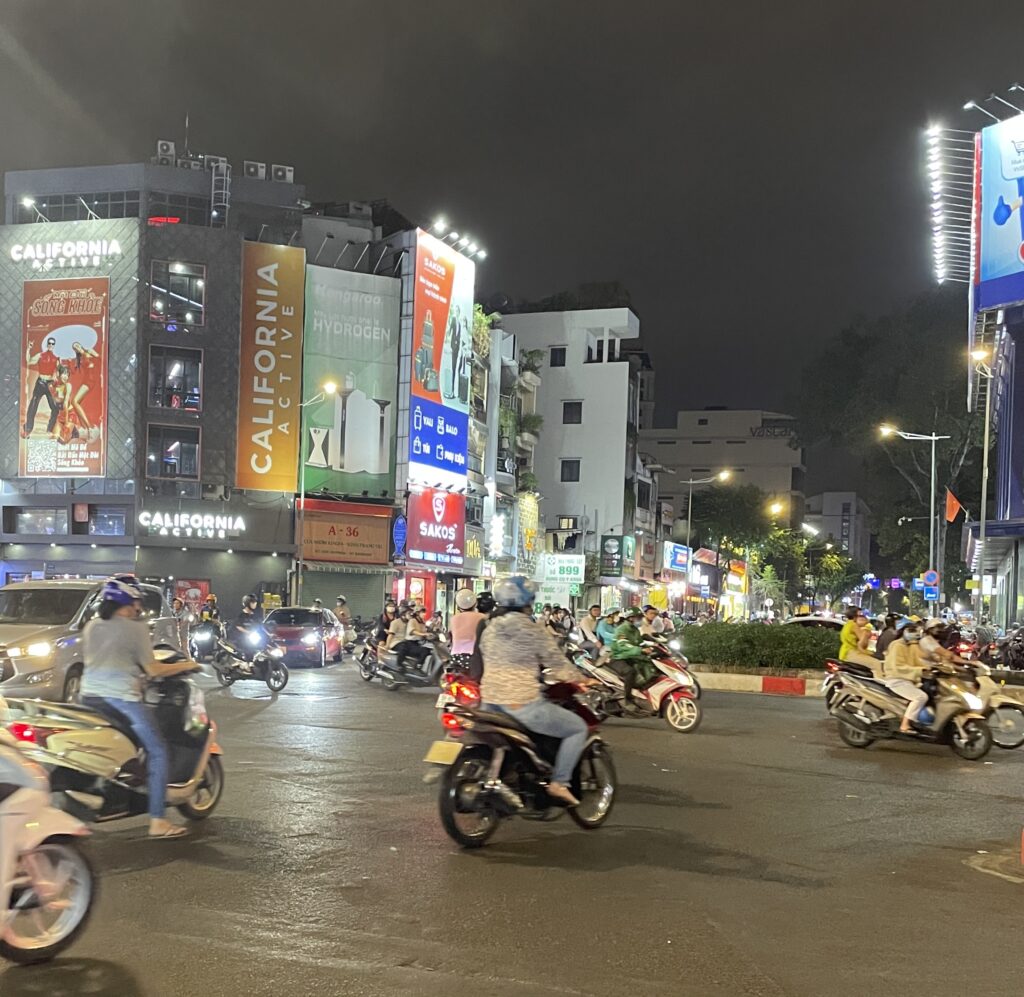
One of the first scams tourists often face happens as soon as they land. At airports in Hanoi or Ho Chi Minh City, it’s common for unlicensed drivers to approach travelers with seemingly “flat-rate” taxi offers.
These prices are usually much higher than what you’d pay with a legit taxi or ride-hailing service.
Some will claim the meter is broken or insist on a set fare that sounds reasonable until you realize it’s two or three times the normal rate. Others may even drive you in circles to increase the cost.
Cyclos, the three-wheeled bicycle taxis commonly seen in Vietnam, often employ a scam similar to that of tuk-tuk drivers in Thailand.
They linger near tourist-heavy areas, offering what seems like a cheap ride, but either start with an outrageously high price or try to demand much more money once the ride is over.
How to avoid it: Stick to official airport taxi counters or use apps like Grab for a pre-set fare.
If you want to try a cyclo ride for the experience, always agree on the total price before you get in, and be firm about paying only that amount at the end.
Rigged Taxi Meters
Even once you’re outside the airport, rigged taxi meters are a notorious scam in Vietnam’s big cities. Some taxis use tampered meters that run up the fare far faster than usual.
What should have been a short ride suddenly costs double or triple the usual amount.
You’ll see this most often late at night or in tourist-heavy areas like the Old Quarter in Hanoi or District 1 in Ho Chi Minh City.
If you’re planning to spend time here, my Ho Chi Minh City itinerary can help you explore District 1 and beyond while avoiding common tourist pitfalls.
How to avoid it: Don’t bother with local taxis, they may be useful for locals, but for tourists, it’s more than common not to end well, stick to Grab.
Fake Grab Drivers

I can’t tell you how often this happens, not just in Vietnam, but even in Thailand too. As soon as you land at the airport, drivers will come right up to you, calling out “Grab, Grab!” hoping you’ll take the bait.
If it’s your first time using the app or your first trip to Vietnam, it can feel legitimate, but what’s really happening is they’re luring you into taking their private car or a taxi at an inflated price.
I saw this first-hand in Saigon just last year. A young backpacker couple was about to hop into one of these “fake Grabs” before I stopped them and explained the trick.
The truth is, if you fall for it, you’ll likely end up overpaying or caught in a typical taxi scam.
The good news is that in major airports like Ho Chi Minh City, Da Nang, and Hanoi, Grab now has designated pickup points to make things safer and more transparent for travelers.
Still, keep your guard up; this scam can also happen on busy streets or outside nightlife areas.
How to avoid it: Only book through the Grab app and double-check the driver’s license plate before you get in. If someone approaches you directly, saying “Grab” without confirmation from the app, walk away.
Bus & Train Ticket Markups
Transportation scams are everywhere in Vietnam, and one of the most common involves bus and train tickets.
Instead of booking directly at stations or through official apps like 12Go, many tourists unknowingly purchase tickets from travel agents or small shops that add significant commissions. Sometimes you’ll pay two to three times the actual price.
Even worse, these tickets can come with vague details, incorrect departure times, no seat assignments, or being assigned to the back row of an old, uncomfortable bus.
How to avoid it: Buy tickets at official counters, use trusted booking apps, or go directly through your hotel if they have a good reputation.
“Closed Hotel” Trick
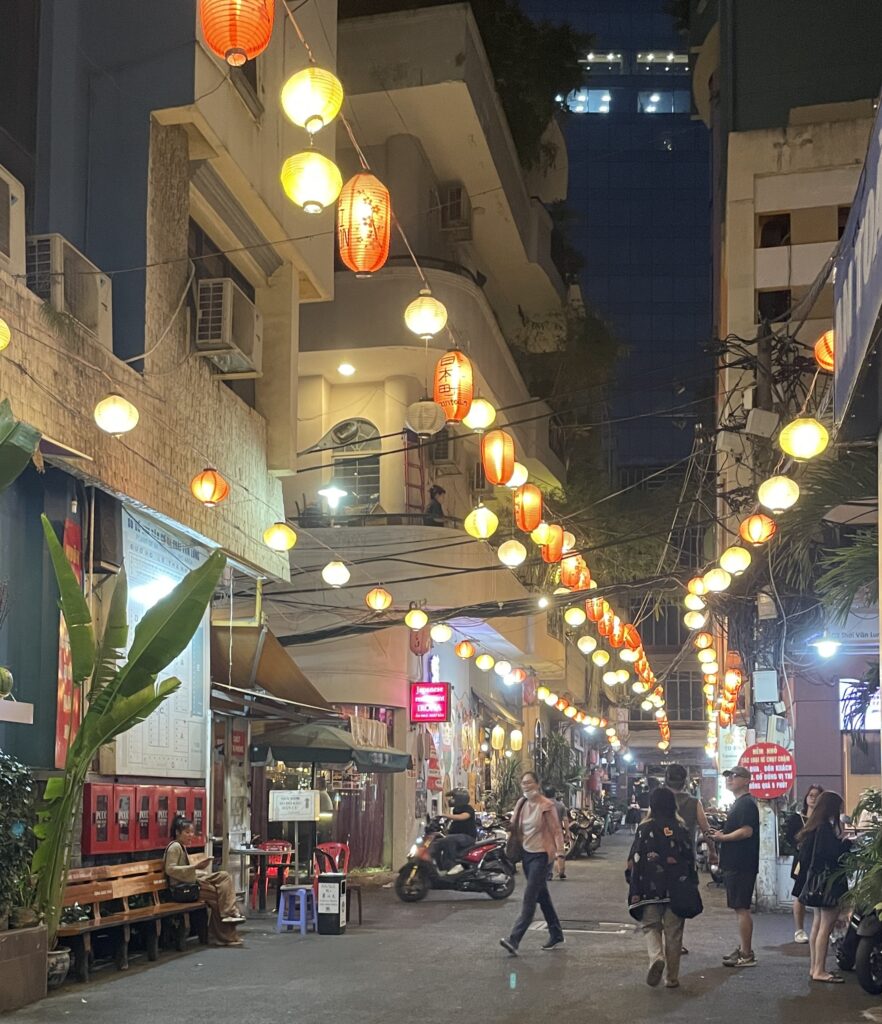
This one’s sneaky and preys on tired travelers. You hop into a taxi, give the driver your hotel name, and halfway there, they tell you it’s “closed” or “full.”
They’ll then try to take you to another property, one that either pays them a commission or is of significantly lower quality.
I’ve seen this scam in both Hanoi and Ho Chi Minh City, and it’s frustrating because it often targets tourists arriving late at night.
How to avoid it: Always call your hotel ahead of time to confirm your booking. If a driver tries this trick, insist on being taken to your original hotel. Having your hotel’s phone number handy helps; you can call and let the driver know you’ve already confirmed it’s open.
Motorbike Rental Scams
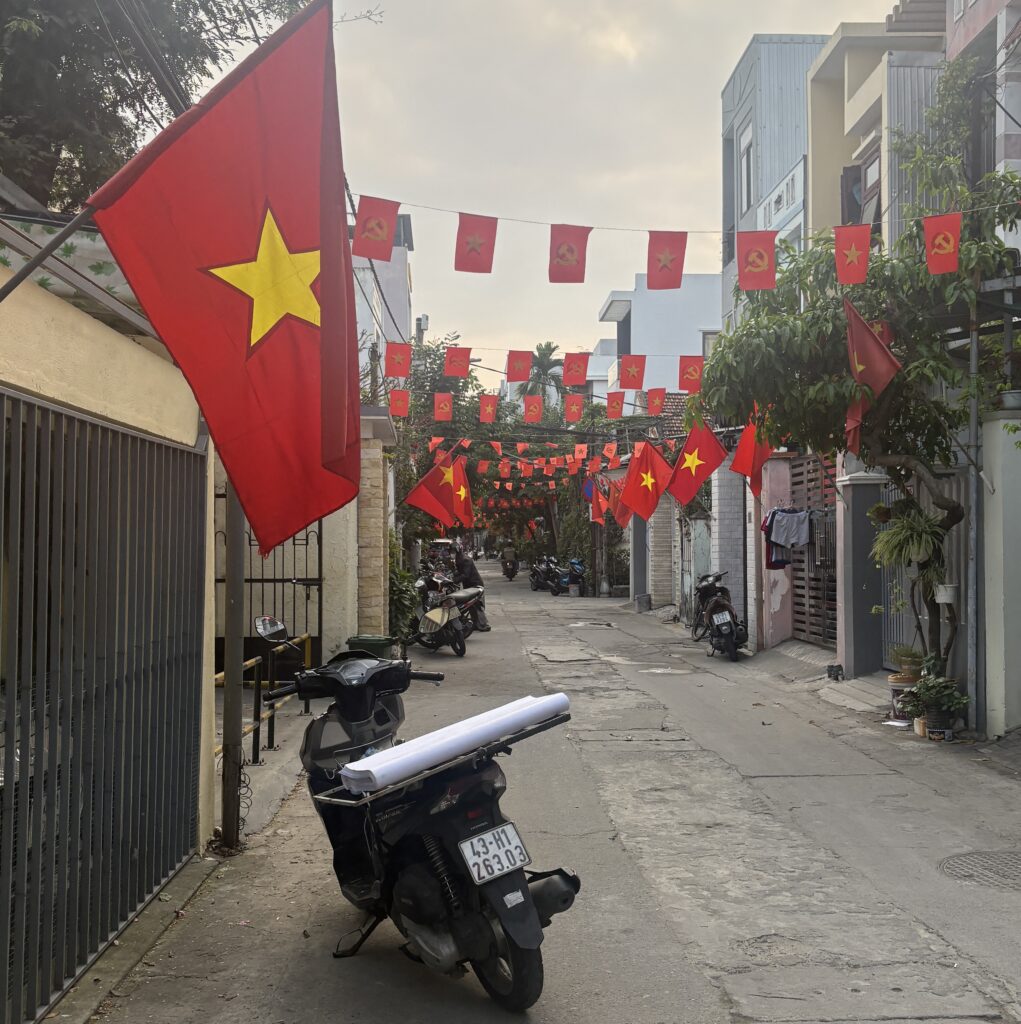
Renting a motorbike is one of the best ways to explore Vietnam, but it’s also one of the riskiest areas for scams.
A common trick is for rental shops to charge you for scratches or damages that weren’t your fault, sometimes ones that were already present when you picked up the bike.
Another variation is giving you a bike in poor condition, then demanding payment for “repairs” when it inevitably breaks down.
How to avoid it: Always thoroughly inspect the bike before riding and take photos or videos of any existing damage. Ask about insurance, wear a helmet, and never leave your passport as collateral.
Street Money Exchange
On the streets of Hanoi and Ho Chi Minh City, you’ll often find people offering “better rates” for exchanging your dollars or euros compared to banks.
It sounds tempting, but this scam is everywhere. What actually happens is you’ll either get fake bills, swapped notes, or short-changed without realizing it.
Even if the bills appear legitimate, you may end up with old or damaged currency that vendors won’t accept later.
It’s an easy way for tourists to lose a significant amount of money in just a single exchange.
How to avoid it: Always exchange money at banks, ATMs, or licensed exchange counters. If you’re bringing foreign currency, do it at official exchange locations inside airports or trusted gold/jewelry shops that locals recommend.
Dating & Companion Scams
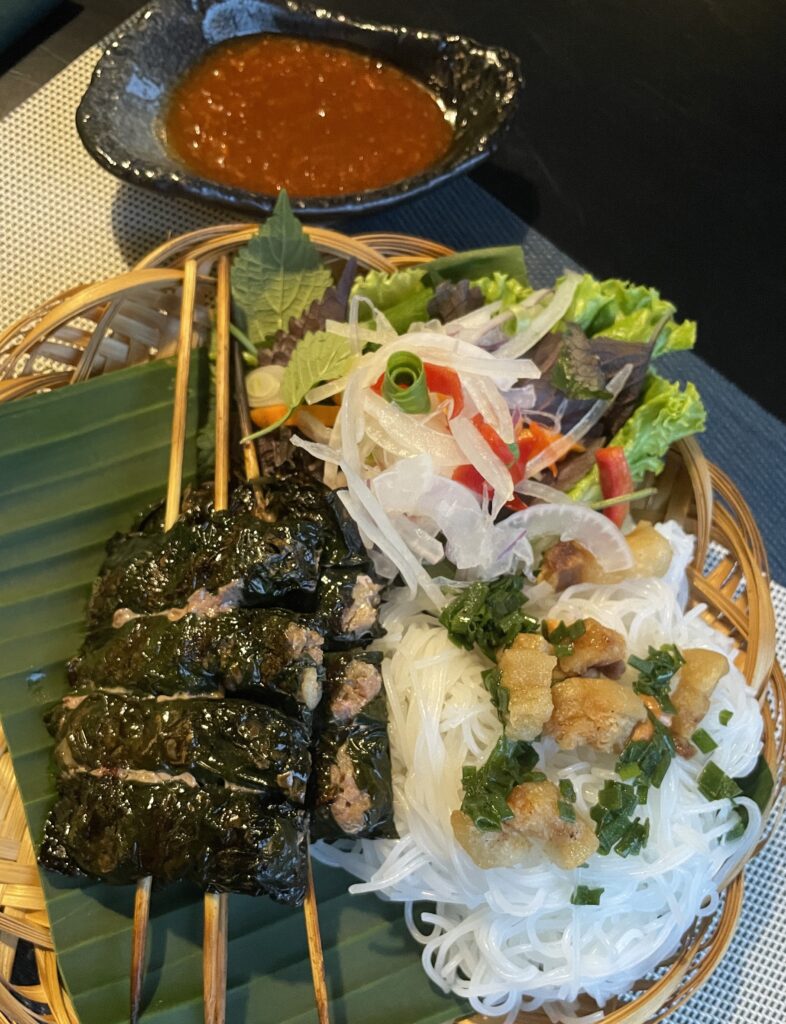
This is one of the most widespread scams globally. I’ve heard of it happening in Thailand, Japan, Mexico, and now it is increasingly happening in Vietnam. It’s clever, simple to pull off, and unfortunately, very profitable for the scammers.
The setup can vary. You might meet someone through a dating app like Tinder, or just casually on the street.
At first, everything feels normal. Then, she suggests heading to a specific bar, restaurant, or café.
What you don’t realize is that she’s connected to the establishment, and her role is to bring in new “customers.”
Once inside, the scam begins. Drinks and food are ordered freely, often at inflated prices. When the bill arrives, you’re paying for the entire thing.
Afterwards, she disappears, no contact, no follow-up, because she’s already received her cut of the profits for bringing you in.
There are countless variations of this scam, but the outcome is always the same: an expensive night you didn’t sign up for.
How to avoid it: Be cautious when someone you have just met insists on going to a specific venue. Always check reviews online, control what you order, and trust your instincts if something feels off.
Dodgy Vendors Targeting Tourists
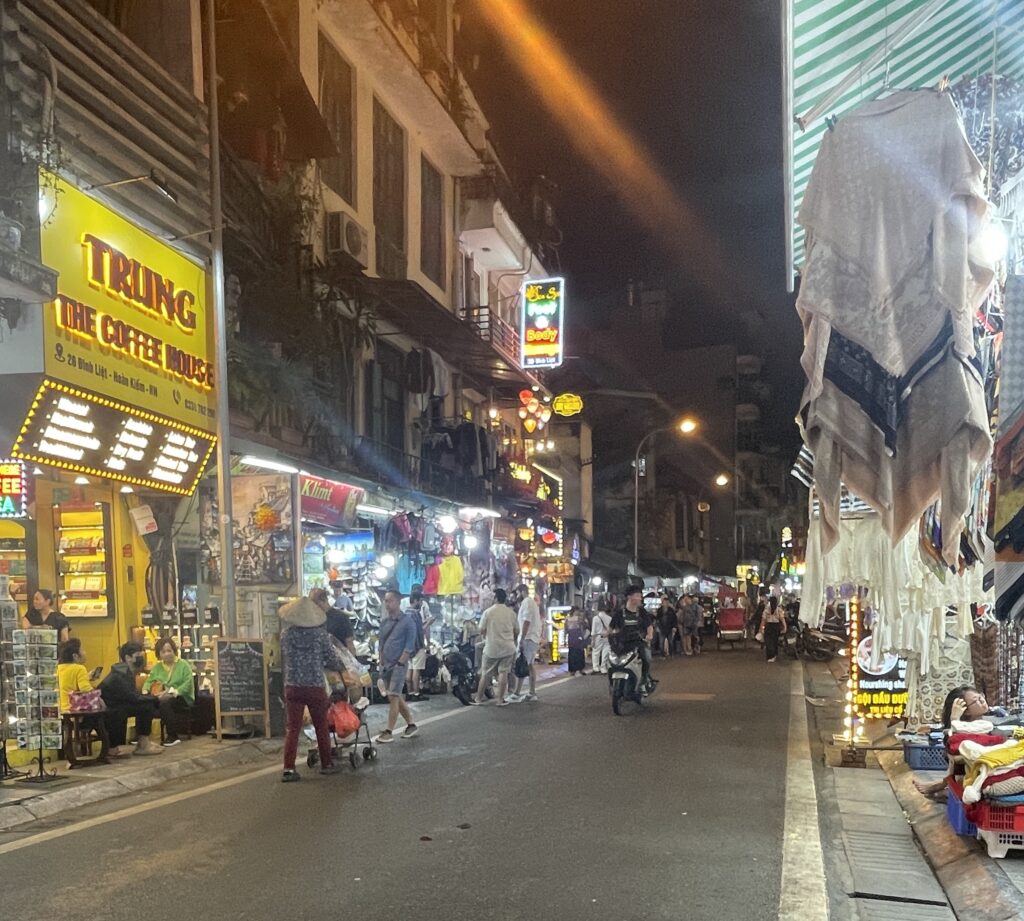
Markets and street stalls are some of the most exciting parts of traveling in Vietnam, but they’re also hotspots for scams aimed at tourists.
The trick is simple: no prices listed, and once you show interest or pick something up, the vendor quotes an inflated cost.
I’ve seen this countless times in Hanoi’s Old Quarter. A tourist reaches for a piece of fruit, and suddenly they’re being asked for an outrageous price, sometimes ten times the actual value.
The same happens with small street desserts; I was once quoted $5 USD for a snack I knew should cost around $1. Instead of arguing, I laughed, walked away, and found the same treat nearby at the proper price.
The rule I live by is this: if there’s no clear price sign, ask before touching or trying anything. Agree on the cost upfront, and you’ll avoid the awkward back-and-forth.
For a deeper dive into what’s worth your time (and your money), check out my guide on the best things to do in Hanoi.
Tourist-heavy spots such as Ben Thanh Market in Ho Chi Minh City or the Old Quarter in Hanoi are notorious for this. While some vendors are honest, others see foreigners as an easy profit.
How to avoid it: Stick to stalls and shops with visible price signs when souvenir shopping in Vietnam, always confirm the cost before buying, and don’t be afraid to walk away if it feels unreasonable.
And as a side note, you’ll sometimes see ladies in the Old Quarter offering fried donut balls as “free samples”, but once you take one, you’ll often be pressured to pay, so politely decline.
Fake Tour Companies

Vietnam is packed with incredible tours, from Ha Long Bay cruises to day trips around Hoi An, but unfortunately, not every company is legitimate. Fake or low-quality tour operators are one of the most common scams targeting tourists.
These outfits usually advertise tours at rock-bottom prices, often in busy tourist areas like Hanoi’s Old Quarter or along backpacker streets in Ho Chi Minh City.
The catch? You get what you pay for. Instead of a professional guide and comfortable transport, you might end up on a crowded bus, eating poor-quality meals, or worse, discovering parts of the itinerary are missing altogether.
Some scams even involve fake branding, operators using the names of reputable companies to lure in customers, only to deliver a far inferior experience.
How to avoid it: Book tours through your hotel, trusted platforms like GetYourGuide, Klook, Viator, or well-reviewed operators on Google. If the deal seems too good to be true, it usually is.
“Friendly” Locals Offering Help
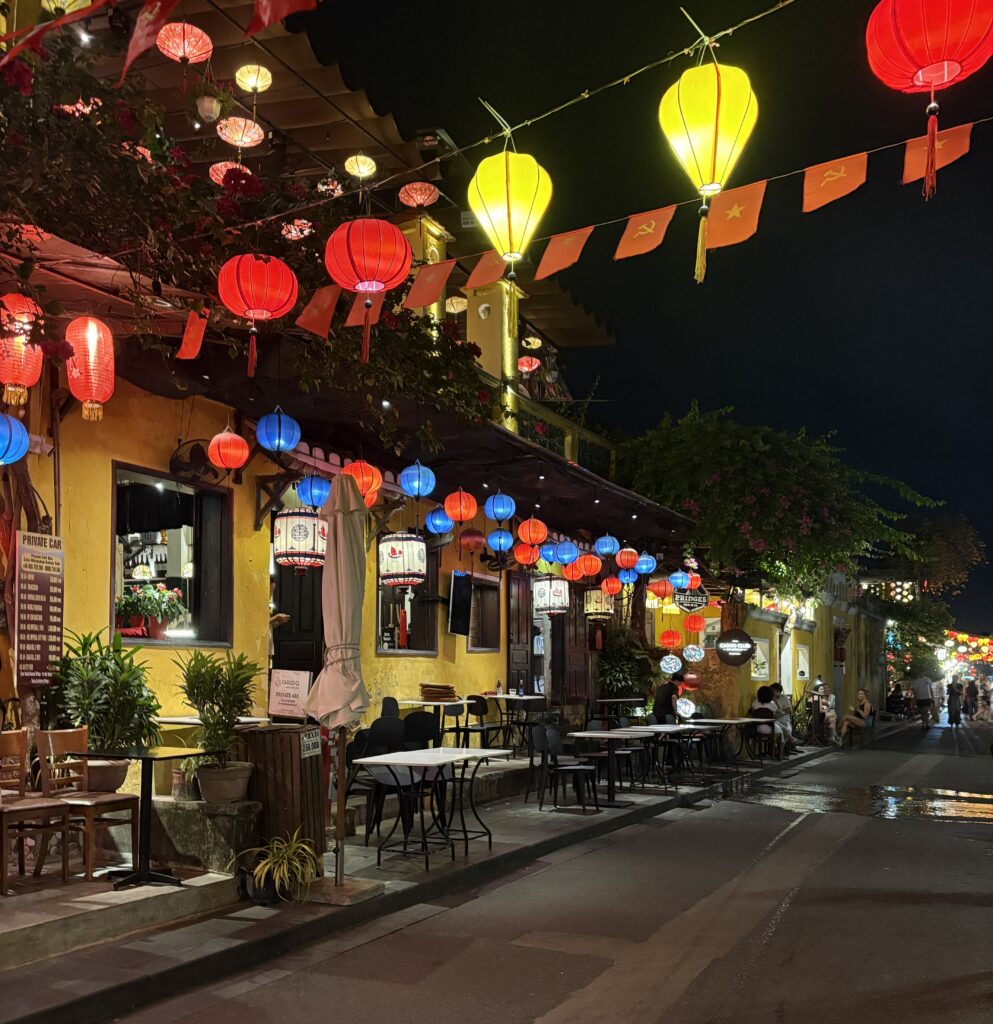
Vietnamese people are known for their warmth and hospitality, but scammers sometimes take advantage of that reputation.
A common trick is when a “friendly” local approaches you out of nowhere, offering help with directions, translation, or even suggesting a café or shop you “must visit.”
This scam can come in many forms. It could be someone casually starting a conversation on the street, a scooter driver stopping for a quick chat, or even a stranger striking up small talk at a café. What seems like kindness quickly turns into a scam.
You’re often led to overpriced souvenir shops, tailor stores, or cafés where inflated prices are waiting. In some cases, these locals receive a commission for bringing tourists in, while you’re stuck overpaying for something you didn’t really want.
How to avoid it: Be polite but cautious. If someone approaches you too eagerly, especially near tourist hotspots like Ben Thanh Market or Hanoi’s Old Quarter, thank them and move on. Stick to recommendations from your hotel, reputable guides, or online reviews instead.
Pickpocketing in Crowds
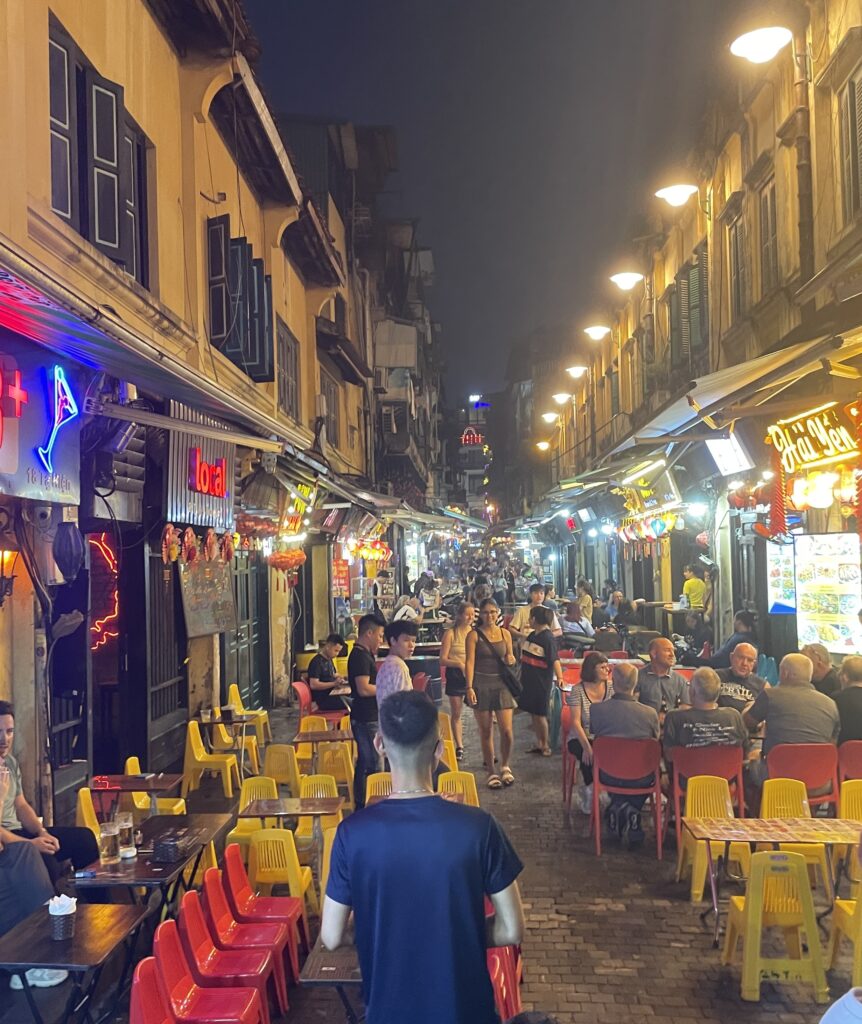
Pickpocketing is one of the oldest scams in the book, and Vietnam is no exception. It’s most common in busy areas, such as night markets, the metro in HCMC, bus stations, and tourist-packed streets, in Hanoi and Ho Chi Minh City.
You’ll want to be especially cautious in packed spots like Beer Street in Hanoi or Ben Thanh Market in Ho Chi Minh City, where the crowds are shoulder-to-shoulder and it’s easy for someone to slip a hand into your bag unnoticed.
Another unique variation in Vietnam occurs with scooters: when traffic is backed up, some drivers hop onto the sidewalk to bypass the congestion.
If you’re distracted on your phone, it only takes a second for it to be snatched out of your hand as they ride by.
How to avoid it: Stay alert in crowded areas. Carry your bag in front of you, use a cross-body with zippers closed, and avoid keeping your phone or wallet in back pockets.
If you need to use your phone, step aside to a less exposed area. You don’t need to be paranoid, just aware; a little vigilance goes a long way. This is one moment where if you do lose something valuable your trip costs to Vietnam will dramatically be higher!
Shoe Shiner Scam
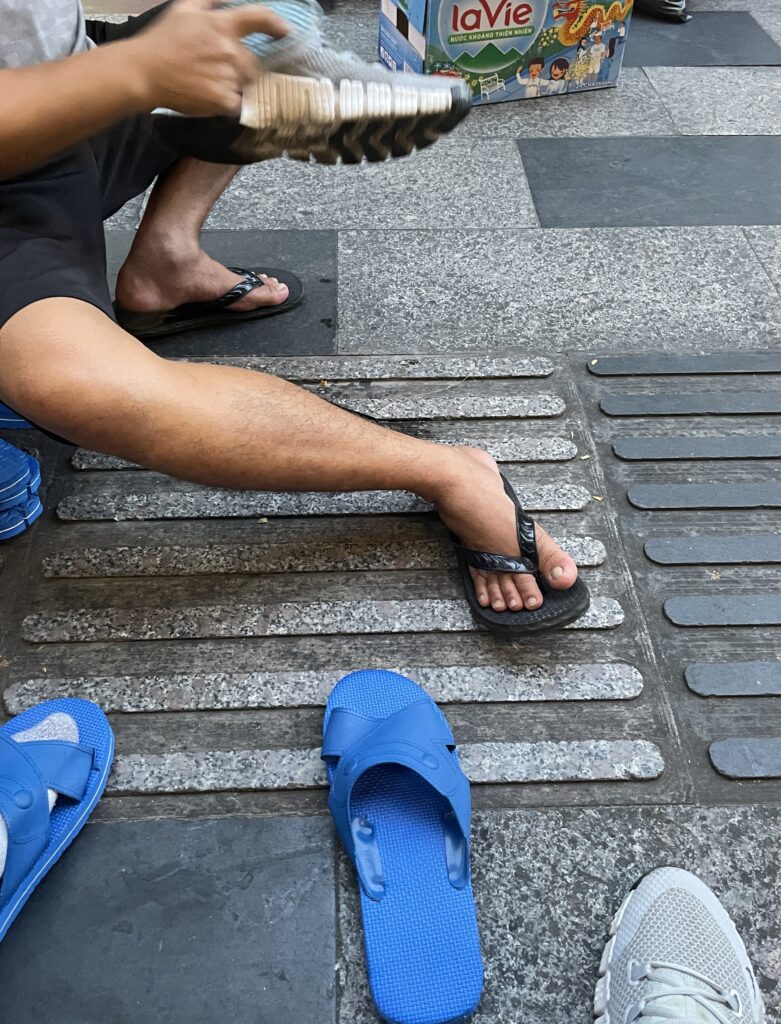
This scam is widespread in Ho Chi Minh City, though you may also encounter it in Hanoi. It plays out in a few different ways, but the ending is usually the same: you’re handed a bill far higher than expected.
Sometimes the scammer will approach you, point out that your shoes look dirty, and offer to shine them. If you agree without confirming the price, you’ll often be hit with an inflated charge once they’re done.
Another variation is more aggressive; they’ll start cleaning your shoes without asking, ignoring your protests, and then demand payment afterward.
In some cases, they’ll even scrape or polish your shoes for a few seconds and hold out their hand, insisting you owe them money, sometimes making a scene to pressure you into paying.
How to avoid it: Unless you want the service, politely decline and keep walking. If you do want your shoes shined, always confirm the price upfront and repeat it back to avoid “misunderstandings.” Otherwise, stick to reputable shops rather than street approaches.
Photo Scam with Street Vendors
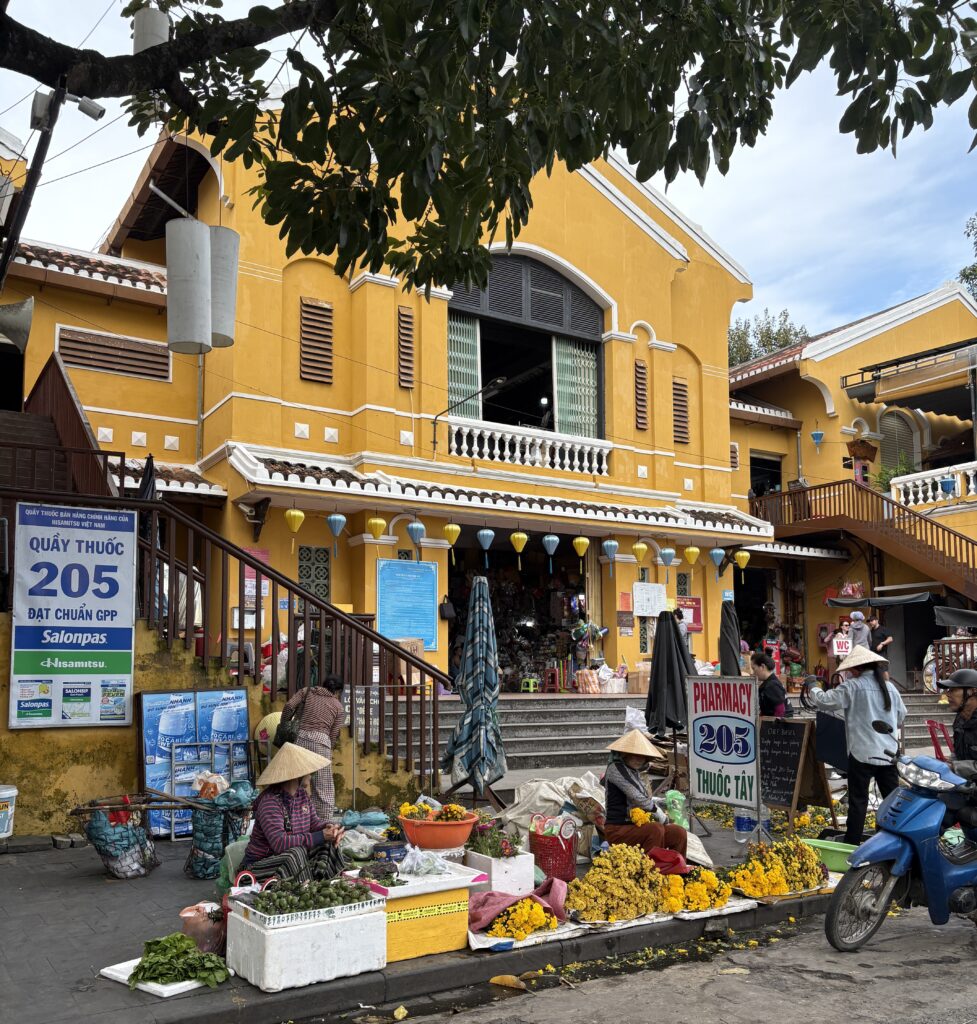
In cities like Hanoi and Hoi An, you’ll often see women wearing the traditional conical hat, sometimes carrying fruit baskets or other props.
They may gesture for you to take a photo, or even pose with a smile as if it’s free. Once you snap the picture, though, the tone changes; suddenly, they’re demanding payment.
What seems like a harmless photo opportunity can quickly become uncomfortable, with some vendors insisting you owe them money for “using their image.”
A few might even place their basket in your hands, encouraging you to pose, only to demand an even higher fee afterward.
I’ll admit, I fell for this the very first time I went to Hoi An. Walking through the morning market in the Old Town, a smiling vendor urged me to take her picture.
I thought nothing of it until the moment I realized it; her smile turned into a frown, and her hand shot out, asking for money. I just kept walking, but it was an early lesson. These days, if anyone insists I take a photo in Vietnam, I avoid it altogether.
How to avoid it: If someone offers a photo opportunity in a tourist hotspot, assume it’s not free. Politely decline if you’re not interested, and if you do want the shot, negotiate a price beforehand so there are no surprises.
Massage & Spa Overcharges
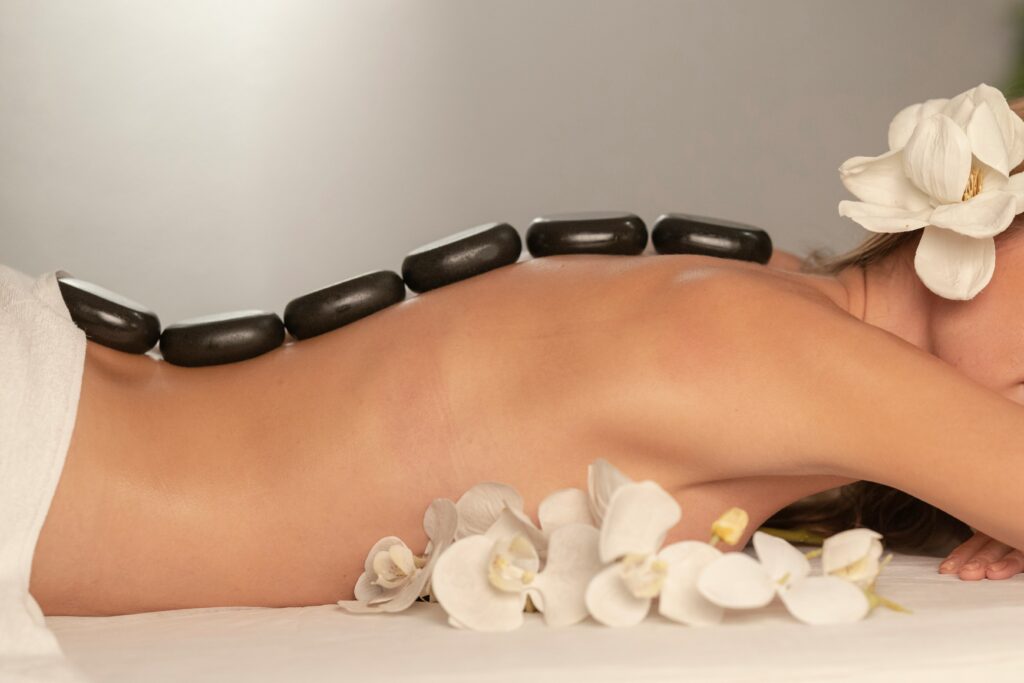
Vietnam is home to numerous massage parlors and spas, ranging from budget-friendly street-side spots to high-end wellness centers. While many are legitimate, some target tourists with hidden fees and inflated bills.
Here’s how it plays out: you walk in after seeing a cheap “$10 full-body massage” sign. The service starts normally, but at the end, the bill suddenly includes extra charges for “special oils,” “foot scrubs,” or even “tips” that weren’t mentioned.
In the worst cases, tourists have been pressured into paying far more than the advertised price, with staff insisting on the higher amount.
The key is that the cheap price outside is only a lure. Once you’re inside, the add-ons appear, and if you’re not firm, you’ll end up overpaying.
How to avoid it: Always clarify the total price before the massage begins, and confirm whether extras are included. Stick to reputable spas, especially those recommended by hotels or those with well-reviewed online reputations. If the atmosphere feels pushy or unclear, walk away; there are plenty of honest places in every city.
Credit Card Overcharge Scam
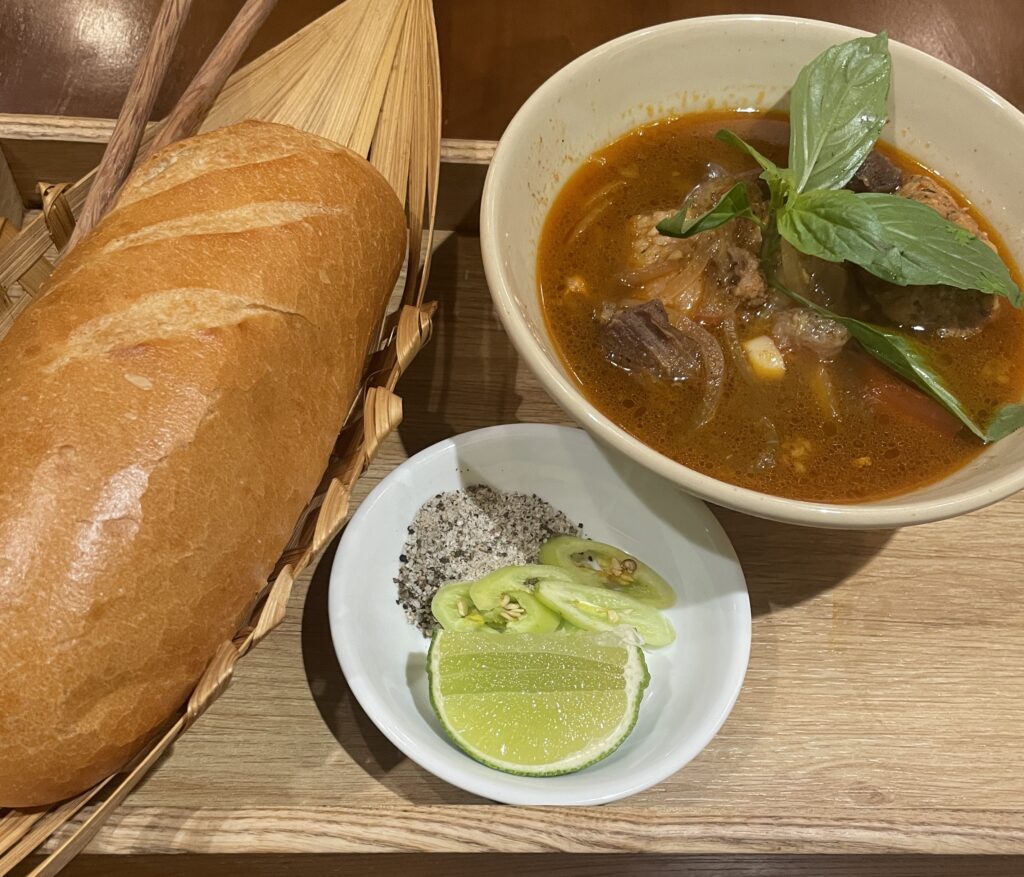
This one is sneaky because you often don’t realize it’s happened until much later. In certain shops, bars, or restaurants, tourists have reported being charged more than the agreed price after handing over their credit card.
Sometimes the bill is inflated with “service fees,” or the total is quietly altered before being processed.
It doesn’t always happen; many places in Vietnam are perfectly trustworthy. However, scams still occur in tourist-heavy areas such as Ho Chi Minh City’s Bui Vien Street or Hanoi’s Old Quarter.
How to avoid it: Always check the final receipt before signing or entering your PIN. If possible, ask for the total in writing before making a payment, or better yet, use cash for small transactions.
Personally, I use a Wise card when traveling, as the app shows the pending charge immediately. I make it a habit to double-check the amount before leaving the restaurant or shop. Keeping your card in sight and confirming charges right away is the best way to avoid this scam.
Hoi An Boat Ride Scam
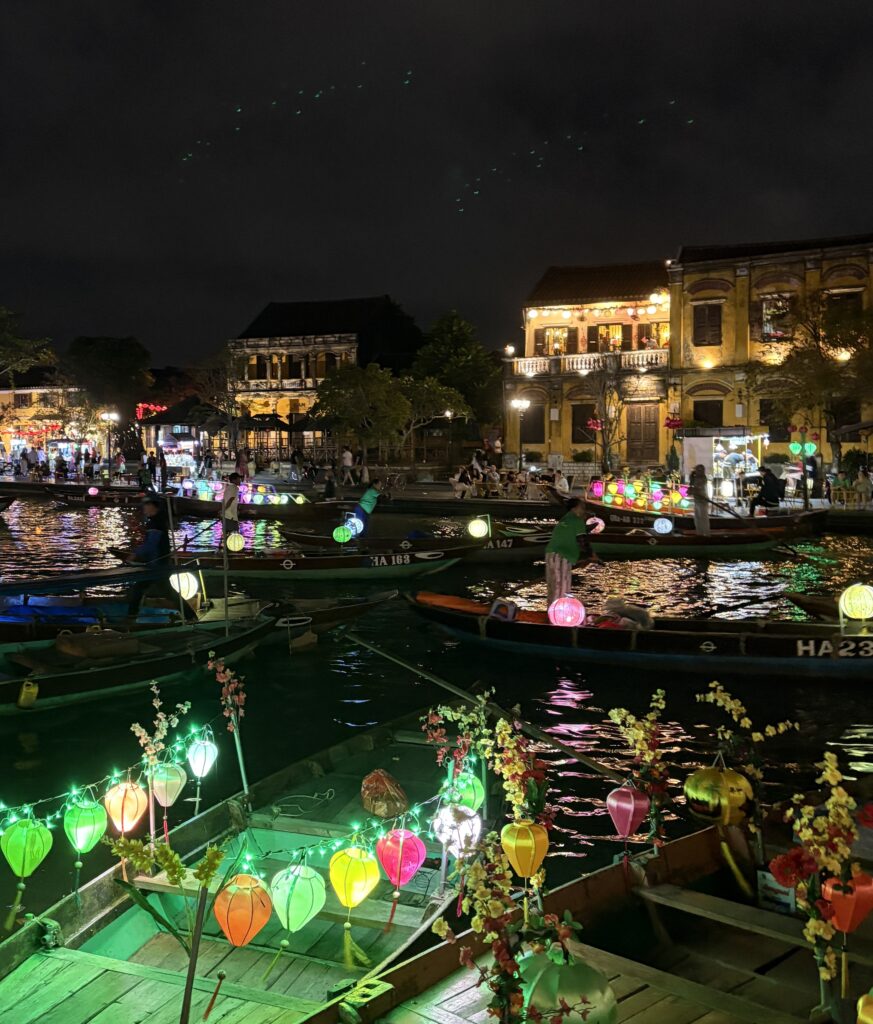
Lantern and basket boat rides are one of the most popular things to do in Hoi An and are undeniably charming, but they’ve also become one of the more common scams targeting tourists.
The setup is simple: you’re quoted a cheap rate for a short ride, only to find that once you’re already on the boat, the price suddenly increases. Hidden “fees” for services like lantern lighting, guide services, or even arbitrary per-person charges are often added on the spot.
Another trick is to offer a rate that seems fair, but once the ride ends, the operator insists the agreed-upon amount was only the “starting price.” With no clear signage or receipts, it quickly becomes a frustrating situation for travelers who feel pressured to pay up.
How to avoid it: Always confirm the price, duration, and what’s included before stepping onto the boat. Ideally, book through your hotel or a reputable tour provider instead of walk-up offers along the riverbank. If a deal seems vague or too good to be true, trust your instincts and decline politely.
Final Thoughts on Tourist Scams in Vietnam
Vietnam is one of the most rewarding destinations in the world, the food, landscapes, and people are truly unforgettable.
However, like many popular tourist destinations, scams are prevalent, and first-time visitors are often the most vulnerable targets.
The key takeaway? Awareness goes a long way. Most scams aren’t dangerous, just frustrating and costly, and by knowing the common tricks ahead of time, you’ll avoid sticky situations and keep your trip stress-free.
If you’re preparing for your first visit, brushing up on a few practical travel tips for Vietnam can make all the difference in keeping your journey smooth.
That said, I want to leave you with this: Vietnam is also home to some of the warmest interactions I’ve ever had in all my travels.
Not everyone is out to scam you, far from it. I’ve had countless moments that remind me why this country is one of my favorites.
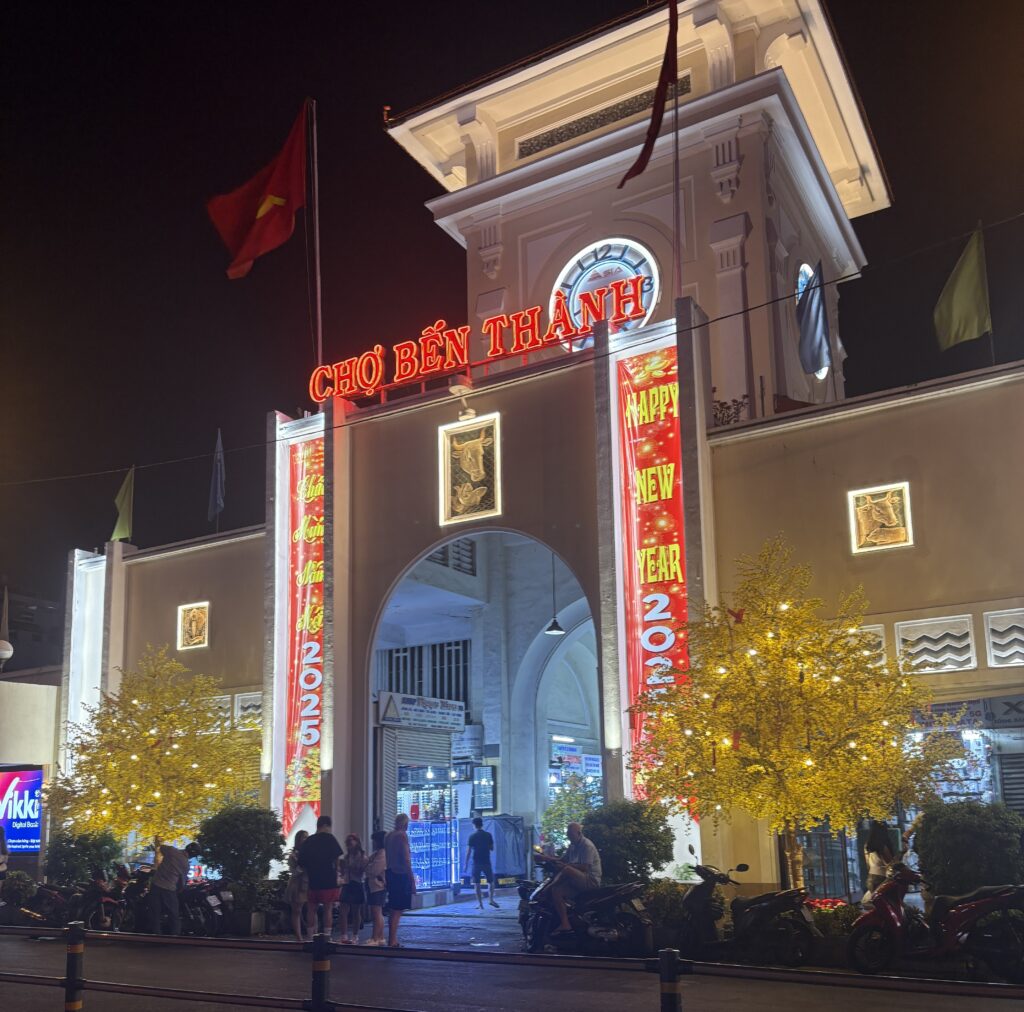
For example, at the War Museum in Ho Chi Minh City, I once struck up a conversation with a schoolboy visiting the museum with his class, who admired my Ronaldo shirt and spoke good English. I then met his mother, who was so kind that she later invited me to dinner with her family and absolutely refused to let me pay
In Da Nang, I’ve built a connection with a family-run restaurant where they once invited me to share their staff meal and even slipped me free snacks on another occasion.
Once, they invited me to share their staff meal and even slipped me free snacks on another occasion. These are the kinds of experiences that stick with you far longer than any scam encounter.
Yes, scams do happen; they occur everywhere in the world. But Vietnam’s humanity and hospitality shine brighter. If you stay alert, avoid the common tourist mistakes in Vietnam, and remain respectful, you’ll find that the generosity of the people here far outweighs the bad.
Travel smart, keep an open mind, and you’ll come away with not just memories of breathtaking landscapes and fantastic food, but also genuine human connections that make Vietnam so memorable.
Photos used in this Article DO NOT indicate I was scammed at said place or person; they were used for design purposes.
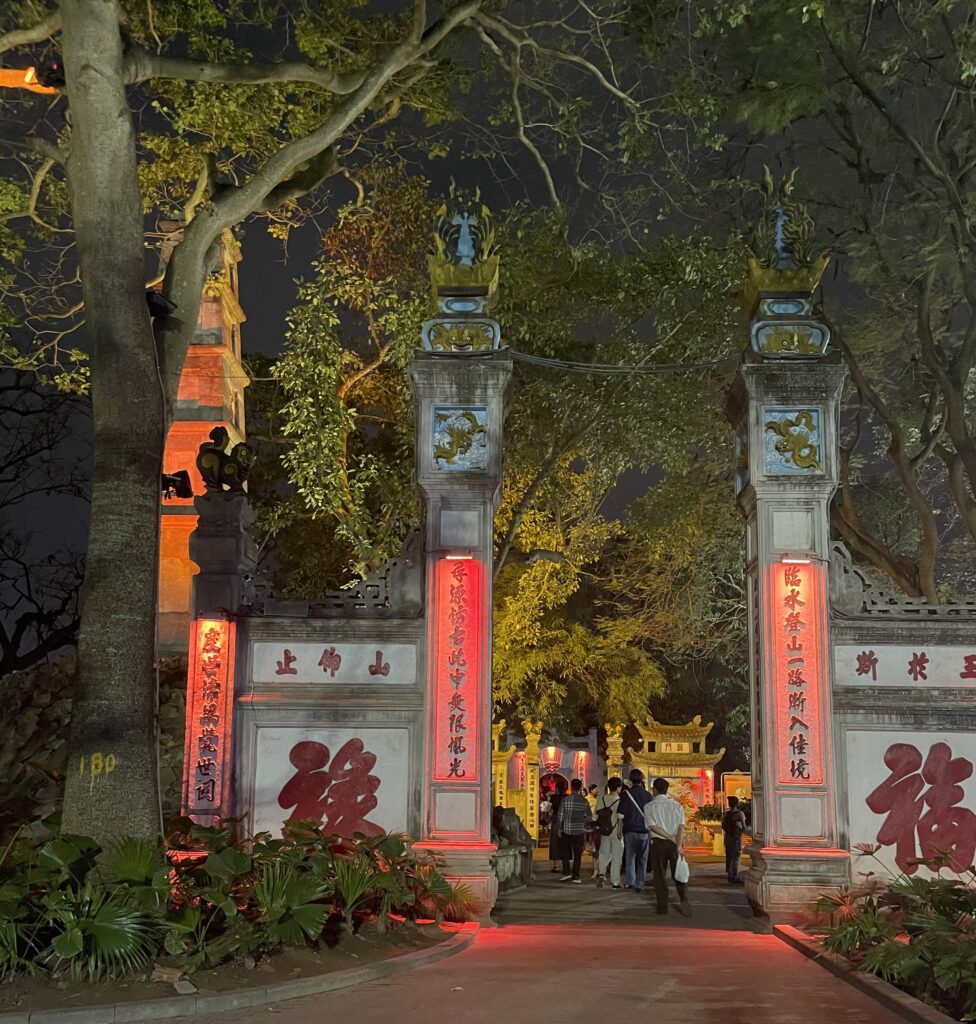
What are the most common scams in Vietnam and how do I avoid them?
The most frequent scams include taxi fraud (like rigged meters and unlicensed vehicles), street vendor tricks (hidden fees or unsolicited souvenirs), and motorbike rental issues (being charged for pre-existing damage).
To avoid them, always use official taxis or ride-hailing apps like Grab, confirm prices before buying or riding, and take photos of rentals before usage.
Are tourist scams in Vietnam real or just exaggerated?
They happen; scammers target tourists in high-traffic areas, such as markets, transport hubs, and tourist attractions.
These scams typically involve small-scale hustles, such as inflated prices or coordinated scams among vendors. Staying alert and informed is your best defense against potential threats.
How can I avoid motorbike rental scams in Vietnam?
Inspect every aspect of the motorbike closely before renting, take photos of any pre-existing damage, and ask about the insurance coverage.
Never hand over your passport; instead, offer a small deposit or a copy of your ID. When possible, rent from reputable providers or those with solid online reviews.
Is overcharging on credit cards a concern in Vietnam?
Yes, some establishments may add unauthorized charges, such as “service fees,” after you have paid. To protect yourself, review receipts carefully before signing, use reliable payment apps like Wise, and keep your card visible at all times.
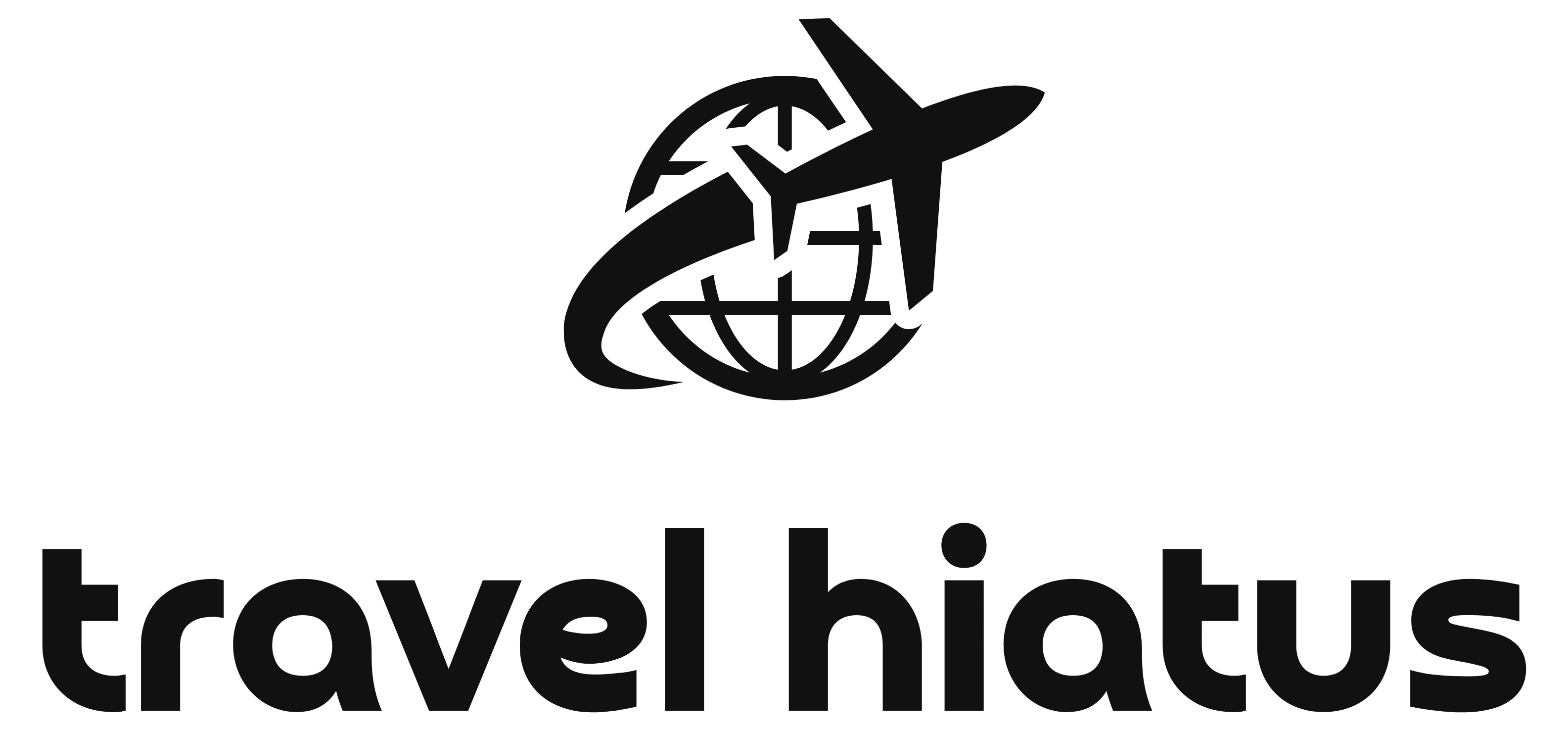
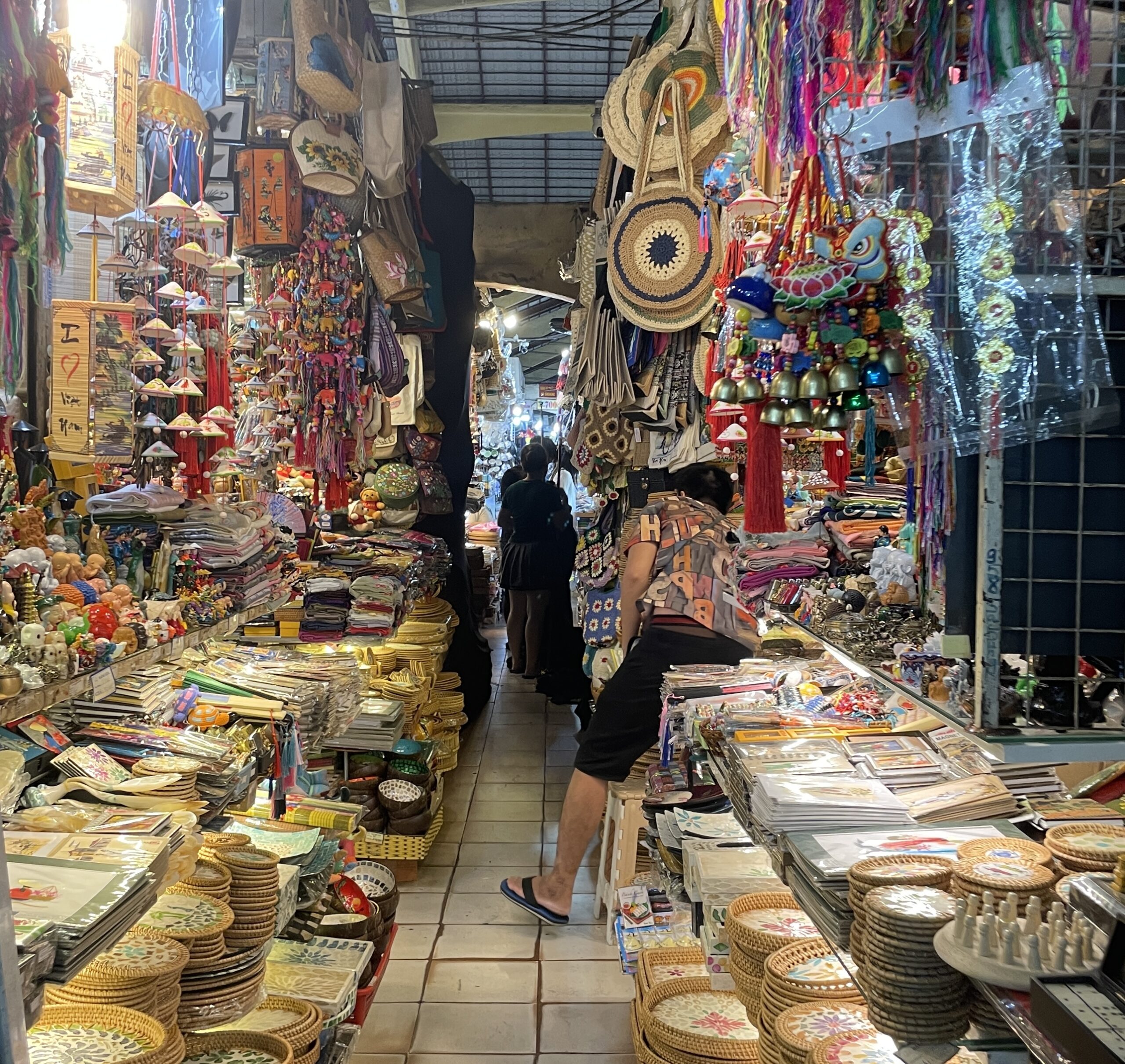
Hello,
Do not install apps Vietnam Number One, this is a scam also. They take 30% commission from guests when use service from this app.
We went to hanoi and sapa. I could say Hanoi has undeniably scam for taxis. Do not ever ride a taxi there. They will sipped the money in your pocket. A short distance of ride cost you 4x the original rate. So disappointing.
Taxi scams in Vietnam unfortunately are rather comment, as a friend of mine says, Always Book the Grab. Did you visit only Hanoi during your trip?
Yes, Vietnam’s unofficial taxi usually 3-4 times higher sometimes even up to 5times if u’re not sure or blur out to where you’re going~
For example from the airport to district 1 or Ben Thanh market is only ard 6kms but those taxis will quote you at least 350k up to 450k for jus basic ride for a solo travelers like me~
Ended up finally I took the official grab only 110k with the lowest surcharge but sometimes they’ll increase up to 130k, then after tat I learn how to take the bus to city and told them I’m heading to Ben Thanh market or Saigon square and the price is super cheap range from 10k to 30k depending on which bus you take, for example bus 152 is the cheapest to Ben Thanh cost only 5k but the bus conductor often overcharge me by 2times higher because I got 1 small hand carry luggage still ok as it’s cheaper only 10k